A Disturbing Discovery At Home
After returning from a week-long vacation, a woman expected the usual routine of unpacking bags and catching up on chores. Instead, she was met with a sight that left her shaken. At the bottom of her trash can lay a motionless creature, swarmed by flies and surrounded by a foul odor. At first glance, it looked as though the animal was already gone. But when she leaned in closer, she realized the faint rise and fall of its chest — it was still alive, though barely hanging on.
Her heart sank as she realized it was an opossum, one of North America’s most misunderstood creatures. Despite the stench and the flies, she refused to abandon him. The woman immediately began making calls, desperately reaching out to local rescues. Call after call went unanswered until, finally, she reached Raven Ridge Wildlife Center (RRWC). On the phone, staff could hear the desperation in her voice. She pleaded for help, terrified that the little animal would not survive another hour without intervention.
Instead of asking her to simply tip over the bin to let the opossum crawl out on its own, the RRWC team urged her to bring the entire trash can — animal and all — to their center right away. She and her husband loaded the heavy bin into their car and drove straight to the sanctuary, clinging to hope that the struggling creature could still be saved.

Breaking Myths About An Unlikely Survivor
When the woman arrived at the center, staff carefully lifted the trash can and peered inside. There he was — weak, sluggish, and covered in grime. The team knew he had likely been trapped for several days without food or water. Yet, against all odds, he was still alive.
While many people dismiss opossums as dirty scavengers, RRWC used this opportunity to share an important truth: opossums are not pests but nature’s quiet helpers. “Contrary to popular belief, these creatures are neither stupid nor filthy,” the center explained in a post. “They are intelligent, remarkably clean, and play an essential role in keeping ecosystems healthy.”
In fact, opossums are known as one of the best natural defenses against Lyme disease. They consume over 90 percent of ticks they encounter, effectively preventing thousands of parasites from spreading to humans and pets. They also groom themselves with the same meticulous care as cats, using their paws and tongues to stay clean.
Even more impressively, opossums are resistant to many dangers that threaten other wildlife. They have a natural immunity to the venom of most snakes, and their low body temperature makes it rare for them to carry rabies. Despite these incredible survival traits, however, they remain vulnerable to human-made hazards — like tall trash cans that serve as accidental traps.

The Road To Recovery
The little opossum’s ordeal was far from over when he first arrived. He was filthy, lethargic, and emitted a strong odor from days of being confined. But the team at RRWC did not hesitate. They provided him with gentle grooming, fresh water, and nutritious meals to restore his strength. Slowly, the animal responded. His eyes began to brighten, his movements steadier with each passing day.
Over the course of several days, staff and volunteers grew attached to the resilient little survivor. They marveled at his quiet determination and his ability to bounce back despite such harsh conditions. What had once been a heartbreaking scene of an animal on the brink of death was transforming into a story of hope.
The woman who had discovered him also remained in touch, eager to hear updates on his progress. For her, the rescue was deeply personal — she knew that if she had returned even a day later, the outcome would have been tragic. Her persistence and refusal to give up had given him the second chance he desperately needed.

Back Where He Belongs
After a short but powerful recovery period, the opossum was ready to return to his rightful home — the wild. RRWC staff carefully transported him back to a safe, natural area near where he had been found. As they opened the carrier, he hesitated for only a moment before scampering out into the grass. He sniffed the air, looked back briefly at his rescuers, and then disappeared into the brush with renewed energy.
For the team at RRWC, it was a rewarding conclusion to a rescue that had once seemed nearly impossible. “It was a powerful moment,” they wrote. “Seeing him return to the wild where he truly belongs reminded us why this work matters so much.”
The woman who had first found him expressed her gratitude, relieved that the creature she thought might be dying was now healthy and free. The staff reminded her, and the wider public, of one key message: “Embrace the opossum. Your yard will be better for it.”
Opossums may not be the most glamorous of animals, but their role in the ecosystem is invaluable. They keep tick populations under control, clean up carrion that might otherwise spread disease, and live peacefully alongside humans when given the chance. This particular opossum’s story serves as a testament to the importance of compassion — and how a single act of kindness can ripple into something much greater.
In the end, the little opossum who had once been trapped in darkness and swarmed by flies now enjoys freedom once more, thanks to the quick action of one woman and the tireless dedication of wildlife rescuers. His story stands as a reminder that even the most overlooked creatures deserve a chance at life, and sometimes, saving the world starts with saving just one animal.


